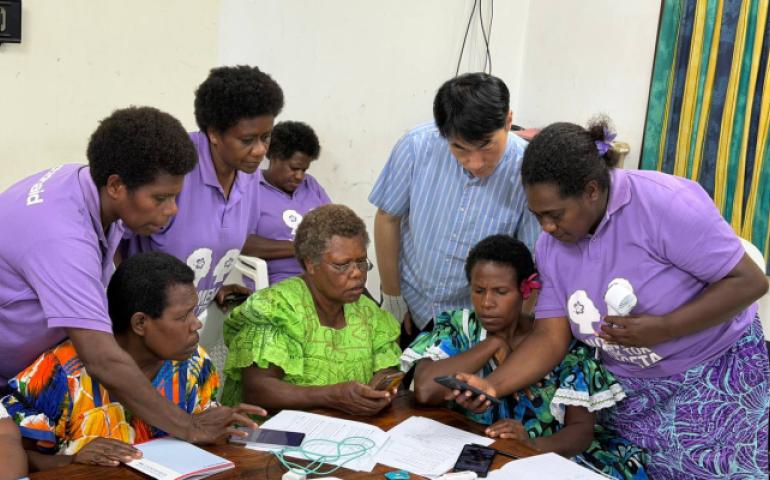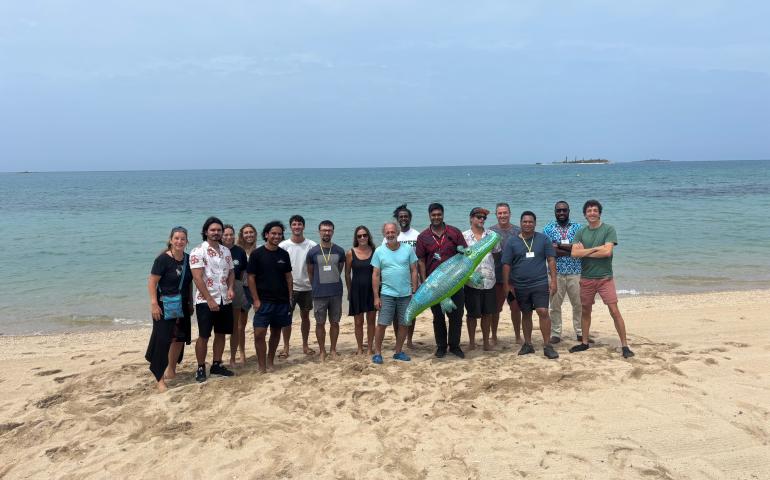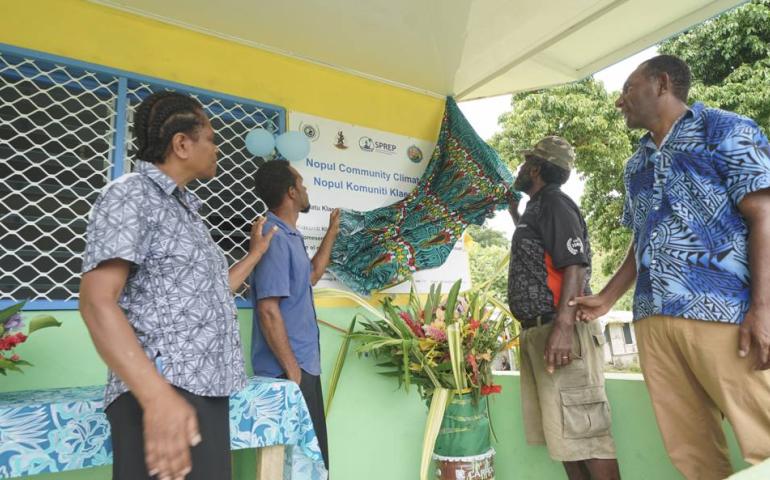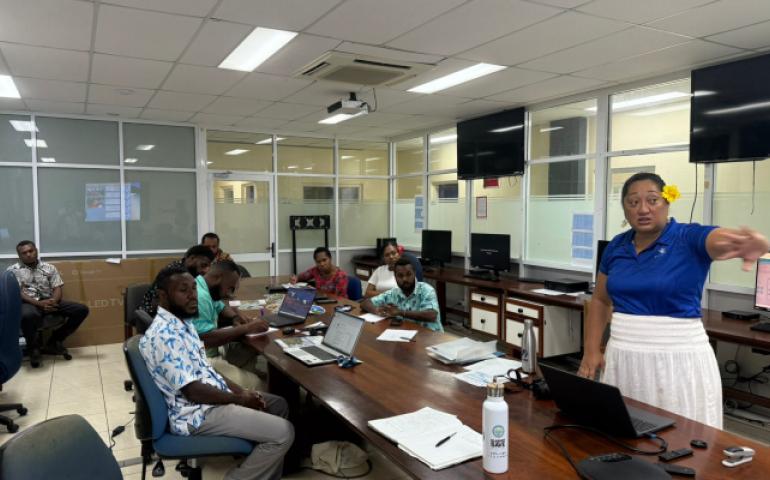Fiji to host IPCC 1st lead authors meeting in October
By Pita Ligaiula of Pacific Island News Association (PINA)
16 August, 2017, Honiara, Solomon Islands, PMC-4 – Fiji has offered to host the first lead authors meeting for the Inter-Governmental Panel on Climate Change (IPCC) Special Report on Oceans and Cryosphere to be held in October this year.
This was revealed by Dr Joy Jacqueline Pereira while presenting at the Pacific Meteorology Council (PMC) currently underway here this week. Dr Pereira is vice chair of the IPCC Working Group II and her presentation was about the impacts of climate change for the Pacific according to the latest findings of IPCC and future priorities of the IPCC.
According to the IPCC scientist, IPCC is currently in its Sixth Assessment cycle, during which it will produce three Special Reports, a Methodology Report and the Sixth Assessment Report (AR6).
“In terms of how that report is going to influence the Conference of the Parties to the United Nations Framework Convention on Climate Change(COP) meeting that is the first lead author meeting that will be held in Fiji, so the authors will be scoping the literature and that report is expected out in September 2019.
After that than the recommendations will be taken up by COP. In September next year is the 1.5 °C impact assessment report will be released and that particular report will go next year to guide the UNFCCC,” said Dr Pereira.
The six reports IPCC is working on includes:
- Global Warming of 1.5°C, an IPCC special report on the impacts of global warming of 1.5°C above pre -industrial levels and related global greenhouse gas emission pathways, in the context of strengthening the global response to the threat of climate change, sustainable development, and efforts to eradicate poverty ( September 2018).
- Special Report on the Ocean and Cryosphere in a Changing Climate (September 2019).
- Special Report on Climate Change and Land: an IPCC special report on climate change, desertification, land degradation, sustainable land management, food security, and greenhouse gas fluxes in terrestrial ecosystems (September 2019).
- Refinement to the 2006 IPCC Guidelines for National Greenhouse Gas Inventories (May 2019)
Working Group I, II, and III contribution to the Sixth Assessment Report (in 2021) and Synthesis Report to the Sixth Assessment Report April 2022.
There will also be a special focus on cities through a conference in AR6 and a special report on cities in AR7.
The PMC meeting ends in Honiara today. PMC members will hold their inaugural dialogue with partners forum tomorrow before ministers responsible for meteorology in the Pacific will hold their one day ministerial on Friday. - #PMC4 #PacificMet
The Fourth Pacific Meteorological Council is being held in Honiara, Solomon Islands from the 14 – 17 August co-hosted by the government of Solomon Islands, the Secretariat of the Pacific Regional Environment Programme (SPREP) and World Meteorological Organization (WMO). This will followed by the Second Pacific Meteorological Ministers Meeting (PMMM) on the 18 of August.
The PMC and PMMM is supported by the Government of Solomon Islands, SPREP, WMO, Government of Australia through the Climate and Oceans Support Programme (COSPPac) and Pacific Australia Climate Change Science and Adaptation Planning Programme (PACCSAP), Government of Finland, National Ocean and Atmospheric Administration (NOAA), United Nations Development Programme through the Resilience in the Pacific (SIDS) project.
The PMC consists of members of the Pacific National Meteorological and Hydrological Services supported by its technical partners, regional organisations, non-government organisations and private sectors.
This article was developed by a Pacific Media Team of Reporters currently providing coverage on the Fourth Pacific Meteorological Council in Solomon Islands. This activity coordinated by SPREP is supported by a partnership between the Government of Solomon Islands, SPREP, Australia funded project (Climate and Oceans Support Program (COSPPac) and UNDP Disaster for Pacific SIDS (RESPAC) project.
The views and opinions expressed in this article are those of the writer and do not necessarily reflect the views of the Secretariat of the Pacific Regional Environment Programme (SPREP) or the United Nations Development Programme (UNDP)both of which provided funding for generating media articles.
- Log in to post comments




